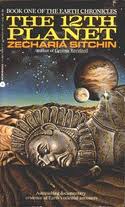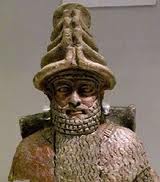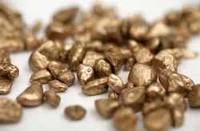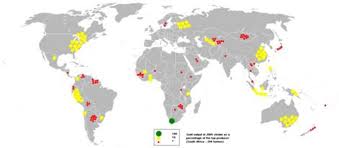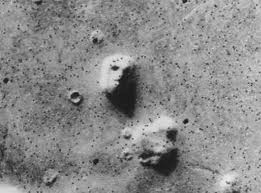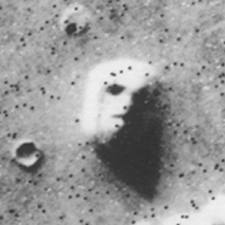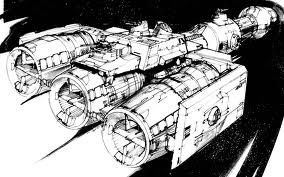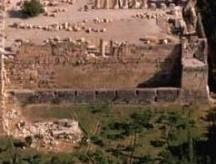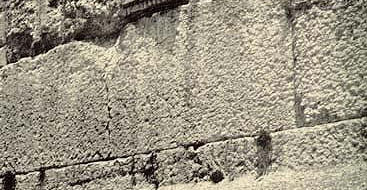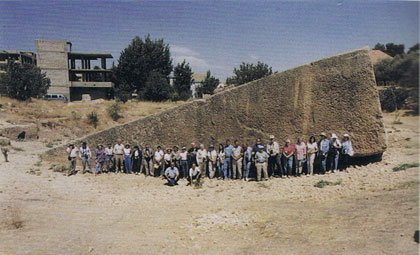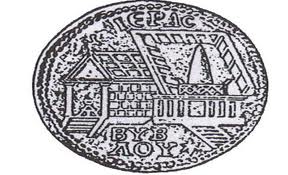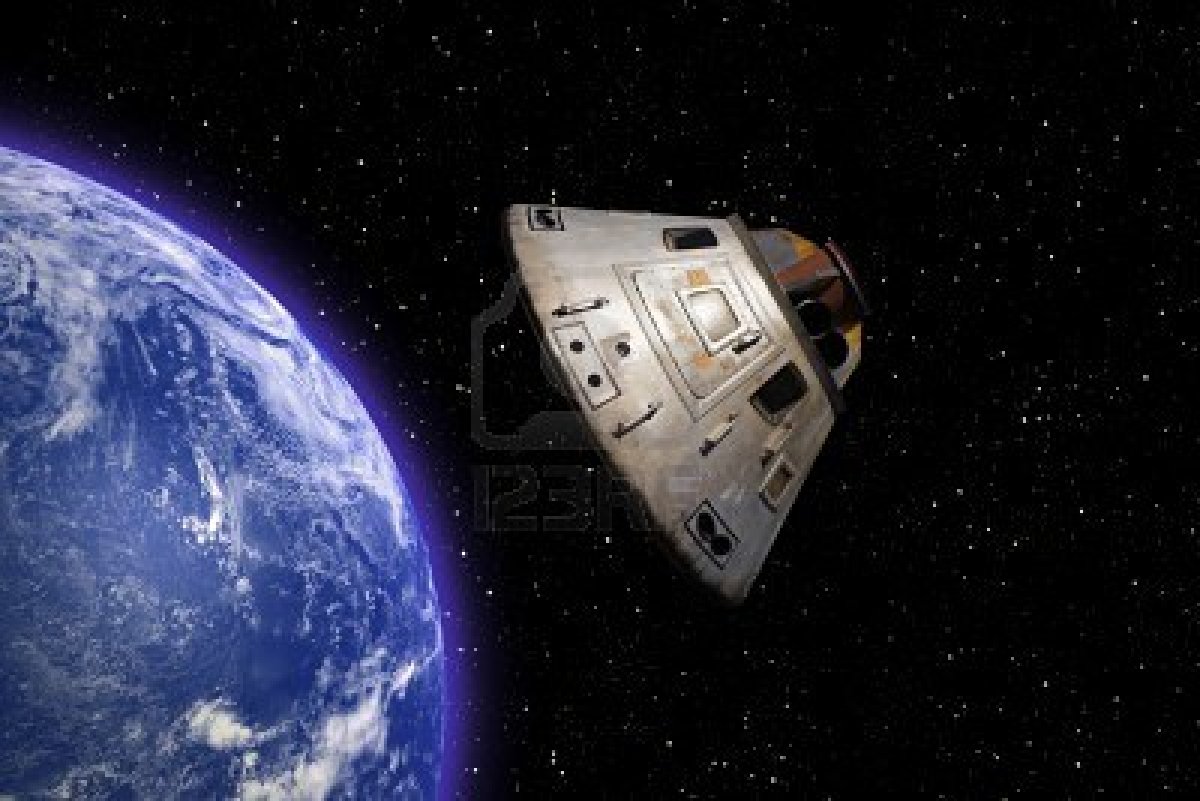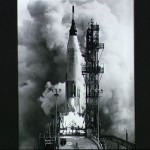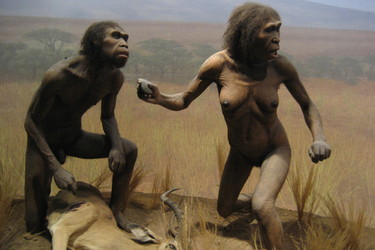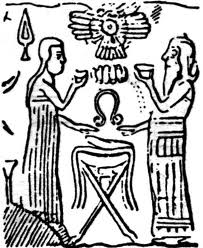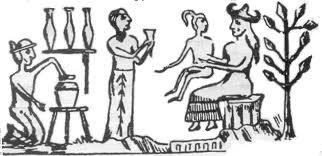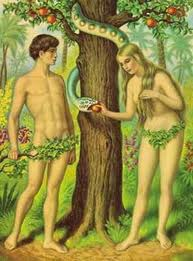|
Page 7 of 10 pages |
||||||
|
Creation of a Servant Race; of Adamu and of Ti-amat
|
||||||
| The
creation of what we now regard as the "Human Race", Homo
Sapiens Sapiens, was not, according to the Sumerian sacred literature,
by the Creator god, the source of all life in the Universe, but by the
lesser self-proclaimed gods who came to Earth from Nibiru searching for
gold to save their own planet from atmospheric deterioration and eventual
death of all living things on their planet. They were
themselves the creation of the Creator God, and they, in turn, created
us.
To those who are now taught Evolution in most schools of the industrialized Western Civilizations and their clones, their teachers' explanation of the origin of mankind is partly correct, but seriously flawed. Mankind was not a chance development in a long line of "nature's" experiments, but was actually "created" by divine individuals who had a purpose in mind, and kept at it until "they" achieved their purpose. Both the identity of the "Creators of Mankind" is in the Bible, and their purpose is in the Bible, but are both well hidden, and many substitute beliefs are in the Bible making, as usual, the Truth hard to find. On our last page, page six of this series, I have quoted Zecharia Sitchin's The Lost Book of Enki because scholars of ancient Sumerian and Akkadian literature have been aware that Enki was responsible for the creation of mankind for many decades, and because Sitchin gives absolutely the best account of "Creation Week" as it is found in the Bible that I have as yet seen anywhere. Sensible, believable, logical, and quite scientific. To what extent Sitchin is interpreting from thirty years or more of research, and to what extent he has actual direct textual backup for his creation week account I have no idea. He uses the Bible as one of his sources, and is here relying heavily on the Bible, but those of us who also rely on the Bible can hardly fault him for that. On the sixth day of "Creation Week" mankind is NOT "created" in the Sumerian version, because all of the rest of the Sumerian and Akkadian literature denies that this is so, and we can rightly assume that some of many Bible "editors" have inserted this part of Genesis chapter one to promote an agenda that did not exist in the original literature. Indeed, in Zecharia Sitchin's chronology found in his 1976 book The 12th Planet, mankind was not created until 300,000 years ago, which was about 144,000 years (40 Shars) after "Creation Week". And let's remember that Alalu, the former god-king of Nibiru had already been living on Earth for 7000 earth-years (2 Shars) before this particular week of seven 24-hour days. It was the Essenes of Qumran, the almost exclusive Bible copyists of the latter 1st century BC and early 1st century AD that compressed the "Creation Story" of Genesis 1 and 2:1-3 into seven 24-hour days, using clues and perhaps some textual back-up from original Sumerian and Akkadian texts to provide that framework. Their agenda was to promote a Millennial Week prophecy which has more logical support since mankind was only given some control of their own fate about 6000 years ago. After we, as Homo Sapiens Sapiens, had existed living in extremely primitive conditions for 300,000 minus 6000 = 244,000 years as servants of the "gods" from Nibiru who created our species.
On our previous page we finished our account of the first SEVEN DAYS on Earth of Enki's expedition to find and process gold for Nibiru's "salvation" with Enki and his group of 50 heroes resting on the Seventh Day, and proclaiming it a day of "Rest" forever, as a remembrance of their successful trip to Earth and of their labor in setting up a camp in what would later be named E.DIN, the "home of those who from Heaven came". This particular area of E.DIN Lord Enki named Eridu, and he was later to have a temple to himself buit here. Turning now to "The Lost Book of Enki" we read on page 78: "Now this is the account of how the searching for gold was begun. And how the plans on Nibiru made to Nibiru salvation did not provide. After the encampment of Eridu was established and the heroes with food were satiated, Ea the task of gold from the waters obtaining started. "In the chariot the Fire Stones were stirred up, its Great Cracker was enlivened; That Which Water Sucks from the chariot was extended, into the marsh waters it was inserted. Into a vessel of crystals the waters were directed, From the waters the crystals all that is metal in the vessel extracted. Then from the vessel That Which Spits Out the waters to the fishpond spat out; Thus were the metals that were in the waters in the vessel collected."
The gold miners from Nibiru may have used techniques like these modern miners "Ingenious was Ea's handiwork, an Artful Fashioner indeed he was! For six Earth days marsh waters were sucked in, marsh waters were spat out; In the vessel metals indeed were collected! The metals on the seventh day by Ea and Alalu were examined; of many kinds were the metals in the vessel, Iron there was, much copper there was; of gold there was no abundance. In the chariot another vessel, the artful handiwork of Nudimmud, The metals after their kinds were separated, ashore kind by kind they were carried. For six days thus did the heroes toil; on the seventh day they rested. For six days were the crystal vessels filled and emptied, On the seventh day were the metals accounted. There was iron and there was copper, and other metals, too; Of the gold, the smallest pile was accumulated."
"In the nighttimes the Moon waxed and waned; by the name Month did Ea its circuit call. At month's very start, its luminous horns six days signified, By its half crown the seventh day it announced; a day to rest it was. At midway by a fullness was the Moon distinguished; then it paused to become diminished. With the Sun's course was the Moon's circuit appearing, with Earth's circuit it was its face revealing. Fascinated by the Moon's motions was Ea, its attachment as Kingu to Ki he contemplated. What purpose did the attachment serve, what heavenly sign was it giving?" "A Month did Ea the Moon's circuit call, Month to its circuit he gave the name. For one Month, for two Months, in the chariot were the waters separated; The Sun, every six Months, to Earth another season gave; Winter and Summer did Ea by names them call. There was Winter and there was Summer; by Year of Earth did Ea the full circuit call. By Year's end of the accumulated gold account was taken; Much to dispatch to Nibiru there was not. The swamplands' waters are deficient, let the chariot to the deeper ocean be moved!"
The Fifth Tablet Page 107 "The Lost Book of Enki" "From the planet Lahmu (Mars) the chariot departed, toward Earth the journey is continued. Around the Moon they made circuits, a way station thereon to explore."
"Around the Earth they made circuits, toward a splashdown slowing. In the waters beside Eridu did Nungal the chariot bring down. To a quay, by Enlil constructed, they stepped off; boats were no longer needed." "Enlil and Enki their sister with embraces greeted, with Nungal the pilot they locked arms. The heroes, male and female, by the present heroes were with shouts greeted. All that the chariot brought was quickly unloaded: Rocketships and skyships, and the tools by Enki designed, and provisions of all kinds." "Of all that on Nibiru transpired, of the death and burying of Alalu, Ninmah her brothers told; Of the way station on Lahmu and the commanding by Anzu she to them related. Enki of that uttered approval, Enlil words of bewilderment uttered. That was Anu's decision, his word was unalterable! Ninmah to Enlil was saying. For the maladies relief I have brought, Ninmah to her brothers said."' "From her pouch a bag of seeds she brought out, seeds in the soil to be sown; A host of bushes from the seeds shall sprout, a juicy fruit they will produce. The juice an elixir shall form, for drinking by the heroes it shall be good. Their ailments it will chase away; happier their mood it shall make! In a cool place the seeds need to be sown, by warmth and water need to be nourishing! So did Ninmah to her brothers say." "The place that for this is perfect I will to you show! Enlil to her said. It is where the Landing Place was fashioned, where an abode of cedarwood I have made! In Enlil's skyship the two of them, Enlil and Ninmah, skyward soared; To the Landing Place in the snow-covered mountains, by the cedar forest, brother and sister went. On the great stone platform the skyship landed, to Enlil's abode they went." |
|
|
Zecharia Sitchin uses this picture on an ancient Phoenician coin in support of his theories about Baalbek. He interprets the conical object in the square shaped area surrounded by some sort of wall as one of the rocket ships of the Anunnaki. As is usual with those objects that do not support existing theories held by the majority of scientific investigators -- theories based on the sole evolution of human beings here on earth with no interference from "divine" or other alien space-races, --"official" sources discount that either the Baalbek stones and the coin are evidence of anything they need pay attention to. Unfortunately for them, they cannot simply "erase" these stones! Enlil, the Rapist! In the religious and political history uncovered by the archaeologists, there is no attempt to make these original gods of the Sumerians and later Babylonians and Persians appear to be particularly "moral" or "ethical". They, like humans, lusted after power and prestige, and went about achieving these ends in ways that even their contemporaries frowned on, and sometimes punished. We read on page 108 of "The Lost Book of Enki" -- "Once inside (his cedar palace), Enlil embraced her, with fervor he kissed Ninmah. Oh my sister, my beloved! Enlil to her whispered. By her loins he grabbed her, Into her womb his semen he did not pour. Of our son Ninurta word I bring you! Ninmah to him softly said. A young prince he is, for adventure he is ready, to join you on Earth he is prepared! If here you stay, let us Ninurta our son bring over! Enlil to her said."
"To the Landing Place (Baalbek in Sitchin's theories) heroes were arriving, rocketships by skyships to the platform they carried. From the pouch of Ninmah the seeds were obtained, in the valley's soil they were sown, A fruit from Nibiru on Earth to be grown!" "In the skyship Enlil and Ninmah to Eridu returned. On the way Enlil to her the landscape showed, the E.DIN's extent to her he showed, From the skies Enlil to her his plans explained." IT'S TIME TO ILLUSTRATE ENLIL'S DIFFERENT CRAFT |
|
||||||||
|
The Sixth Tablet Page 129 About 300,000 years ago "To create a Primitive Worker, by the mar of our essence to fashion him! So was Enki to the leaders saying. The being that we need, it already exists! Thus did Enki to them a secret of the Abzu (Africa) reveal. With astonishment did the other leaders Enki's words hear; by the words were they fascinated." "Creatures in the Abzu there are, Enki was saying, that walk erect on two legs, Their forelegs they use as arms, with hands are they provided. Among the animals of the steppe they live. They know not dressing in garments, They eat plants with their mouths, they drink water from lake and ditch. Shaggy with hair is there whole body, their head hair is like a lion's; With gazrlles they jostle, with teeming creatures in the waters they delight!"
"The leaders to Enki's words with amazement listened. No creature like that has ever in the E.DIN been seen! Enlil, disbelieving, said. Aeons ago, on Nibiru, our predecessors like that might have been! Ninmah was saying. To behold it must be a thrill!" "To the House of Life Enki led them; in strong cages there were some of the beings. At the sight of Enki and the others they jumped up, with fists on the cage bars they were beating. They were grunting and snorting; no words were they speaking. Male and female they are! Enki was saying; malehoods and femalehoods they have, Like us, from Nibiru coming, they are procreating."
"Ningishzidda, my son, their Fashioning Essence has tested; Akin to ours it is, like two serpents it is entwined; When their with our life essence shall be combined, our mark upon them shall be, A Primitive Worker shall be created! Our commands will he understand, Our tools he will handle, the toil in the excavations he shall perform; To the Annunaki in the Abzu relief shall come!" "So was Enki with enthusiasm saying, with excitement his words came forth Enlil at the words was hesitating: The matter is one of great importance! On our planet, slavery has long ago been abolished, tools are the slaves, not other beings! A new creature, beforehand nonexisting, you wish to bring into being; Creation in the hands of the Father of All Beginning alone is held!" "So was Enlil in opposing saying; stern were his words. Enki to his brother responded: Not slaves, but helpers is my plan! The Being already exists! Ninmah was saying. To give more ability is the plan! Not a new creature, but one existing more in our image made! Enki with persuasion said, With little change it can be achieved, only a drop of our essence is needed!" "A grave matter it is, it is not to my liking! Enlil was saying. Against the rules of from planet to planet journeying it is, By the rules of to Earth coming it is forbidden. To obtain gold was our purpose, to replace the Father of All Beginning it was not!" AFTER MUCH DISCUSSION AND MANY TRIALS THAT FAILED The Creation of Adamu
"In the clay vessel the admixture they made, The oval of an Earth female with Anunnaki male essence they put together; The fertilized egg into the womb of Ninmah by Enki was inserted; there was conception! The pregnancy, by an admixture conceived, how long will it last? to each other they wondereed. Will it be nine months of Nibiru, will it be nine months of Earth? Longer than on Earth, quicker than on Nibiru, travail came; to a male child Ninmah birth was giving! Enki the boy child held in his hands; the image of perfection he was. He slapped the newborn on his hindparts; the newborn uttered proper sounds! He handed the newborn to Ninmah; she held him up in her hands. My hands have made it! victoriously she shouted."
"Now this is the account of how Adamu by name was called, And how Ti-Amat as a counterpart female for him was fashioned. The newborn's visage and limbs the leaders carefully examined. Of good shape were his ears, his eyes were not clogged, His limbs were proper, hindparts like legs, foreparts like hands were shaped. Shaggy like the wild ones he was not, dark black his head hair was, Smooth was his skin, smooth as the Anunnaki skin it was." "Like dark red blood was its color, like the clay of the Abzu was its hue. They looked at his malehood: Odd was its shape, by a skin was its forepart surrounded, Unlike that of the Anunnaki malehood it was, a skin from its forepart was hanging! Let the Earthling from us Anunnaki by this foreskin be distinguished! So was Enki saying. The newborn to cry was beginning; to her chest Ninmah closely drew him; Her breast to him she gave; the breast he began to suckle."
"Perfection we did attain! Ningishzidda with elation was saying. Enki at his sister was gazing; a mother and a son, not Ninmah and a Being, he was seeing. A name will you give him? Enki inquired. A Being he is, not a creature! Ninmah cast her hand upon the newborn's body, with her fingers his dark red skin she caressed. Adamu I shall call him! Ninmah was saying. One Who Like Earth's Clay Is, that will be his name!" "For the newborn Adamu a crib they fashioned, in a corner of the House of Life they placed him. A model for Primitive Workers we have indeed attained! Enki was saying. Now a host of Workers like him are needed! Ningishzidda his elders reminded, A model indeed he shall be; as for himself, like a Firstling he shall be treated, From toil he himself shall be protected, his essen alone as a mold shall be! So was Enki saying; by his decree Ninmah was greatly pleased."
Seven Mothers for the Humans "Whose wombs henceforth the fertilized ovals shall carry? Nigishzidda was asking. The leaders the matter pondered; Ninmah a solution offered. From her citty Shurubak Ninmah female healers summoned, the task required to them she explained, To the crib of Adamu she led them, the newborn Earthling to perceive, To perform the task is not a commandment! Ninmah to them was saying; your own wish is the decision! Of the female Anunnaki assembled, seven stepped forward, seven the task accepted." "Let their names for all time be remembered! Ninmah to Enki was saying. Their task is heroic, by them the race of Primitive Workers shall come into being! The seven stepped foreward, each one her name was announcing; the names Ningishzidda recorded: Ninimma, Shuzianna, Ninmada, Ninbara, Ninmug, Musardu, and Ningunna, These were the names of the seven who by their own wish birth mothers were to be. Earthlings in their wombs to conceive and bear, Primitive Workers to create." ----------------------------------------- "There was conception; with anticipation was the allotted time counted. At the allotted time, birth-givings were occurring! At the allotted time, seven male Earthlings were born, Their features were proper, good sounds they were uttering; by the heroines they were suckled."
Seven More Divine Mothers! Ningishzidda was happy and willing to get seven more volunteers to produce seven more male Primitive Workers, but Enki saw this as an endless task for Anunakki females, so he proposed that Ningishzidda go to work again in his lab and create an initial female Primitive Worker that could produce children by more natural means. Enki's wife Ninki volunteered to carry this experimental female to term. "There was conception; in the allotted time Ninki was in travail; a birth there was not. Ninki the months counted, Ninmah the months counted; the tenth month, a month of evil fates, they began to call. Ninmah, the lady whose hands wombs has opened, with a cutter an incision made. Her head was covered, on her hands protections she wore; With dexterity the opening she made, her face at once was brightened: That which in the womb was from the womb came forth," "A female! A female birth was given! to Ninki with joy she shouted. The newborn's visage and limbs they carefully examined, Of good shape were her ears, her eyes were not clogged; Her limbs were proper, hindparts like legs, foreparts like hands were shaped; Shaggy she was not, like beach sands was the hue of her head hair, Her skin smooth was, as that of the Anunnaki in smoothness and color it was. Ninmah the girl child held in her hands. She slapped her hindparts; Proper sounds the newborn uttered! To Ninki, the spouse of Enki, she the newborn handed, to be suckled, nourished, and raised."
"A name you will give her? Enki of his spouse inquired. A Being she is, not a creature. In your image she is and after your likeness, Perfectly she is fashioned, a model for female workers you have attained! Ninki cast her hand upon the newborn's body, with her fingers her skin she caressed. Ti-Amat let her name be, the Mother of Life! Ninki was saying. Like the planet of old of which the Earth and the Moon were fashioned, let her be called, Let her womb's life essences other birth-givers shall be molded, To a multitude of Primitive Workers she thereby life will be giving! Thus was Ninki saying; the others words of concurring uttered."
Before this failure of procreation was discovered, however, a great celebration had been held in E.DIN, at Eridu, the settlement that still belonged to Enki, where Adamu and Ti-Amat were brought and admired by all the divine beings from Nibiru. Page 145, mid-page. "As for Adamu and Ti-Amat, from the toil of the excavations they shall be protected, Let us them to the E.DIN bring over, to the Anunnaki therein our handiwork display! So was Enki to the others sayuing; with that the others did concur. To Eridu, in Edin the city of Enki, Adamu and Ti-Amat were taken, An abode in an enclosure for them was built, to roam therein they could." "The Anunnaki of the Edin came to see them, from the Landing Place they came. Enlil came to see them; by the sight his displeasure was diminished. Ninurta came to see them; Ninlil did as well. From the way station on Lahmu Marduk the son of Enki also came down to see. It was a sight most astounding, a wonder of wonders it was to behold! Your hands have made it, the Anunnaki to the fashioners were saying. The Igigi who between Earth and Lahmu shuttled were also all agog. Primitive Workers have been fashioned, our days of toil to end! So were they all saying." NEXT: A Disappointed God becomes Angry with Mankind |
|
It is my goal in this series of pages not to prove the Bible "wrong" but to fill in some details that the Bible's authors left out because they judged them unsuitable for those they saw as their target congregation or audience -- and to re-interpret some symbolism and parables for a more modern and better educated group of readers.
|
